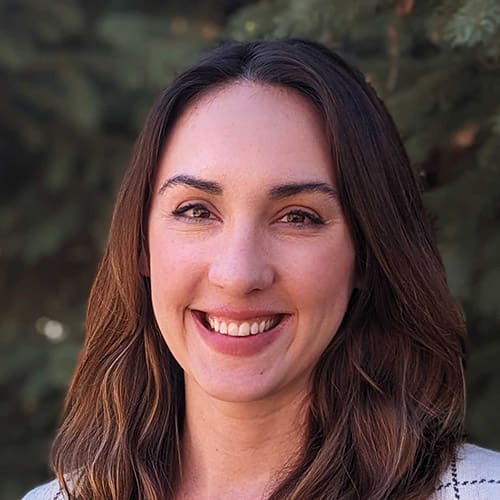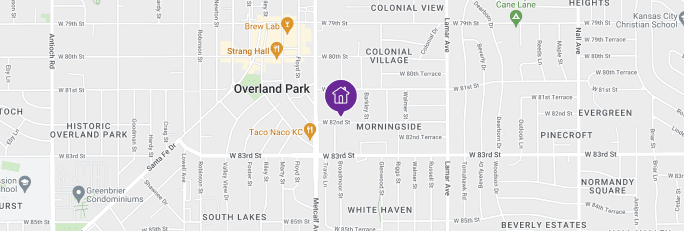
22 Best Caregiver Support Groups Online and In-Person

Caregiver support groups are a way for you and other caregivers to share experiences, insight, and words of encouragement. Whether you’re an in-home caregiver, caring for someone with Alzheimer’s or another form of dementia, or have a family member in an assisted living community, a caregiver support group can help you cope and find solutions.
Let our care assessment guide you
Our free tool provides options, advice, and next steps based on your unique situation.
Caregivers need support
In 2023, 41.8 million people provided unpaid care for a loved one in the United States, according to the Caregiving in the U.S. 2020 Report published by The National Alliance for Caregiving (NAC) and AARP.[01] This represents one of the biggest unspoken challenges for Americans, and as the Baby Boomer generation continues to age, the number of caregivers experiencing these challenges will continue to rise. Most of these caregivers are daughters or sons who live near their parents. They provide on average 24 hours of care a week on top of their own careers and other responsibilities.
For caregivers who live with their ailing loved ones, this number goes up to about 37 hours a week of unpaid labor. It comes as no surprise that 82% of caregivers say that their physical and mental well-being is jeopardized by their caregiving duties. 76% of family caregivers say they were not prepared to take on these responsibilities.[02]
Caregivers of elderly loved ones can feel pulled in two different directions. 36% of caregivers are between the ages of 50 and 64 — a group sometimes called the Sandwich Generation — and many have adult children and grandchildren to support in addition to their own parents. The financial strain of caregiving is another stressor, with families spending on average $7,242 a year on expenses related to caregiving.[02]
Many caregiver support groups have sprung up in response to this increasingly widespread challenge. As of 2023, 1 in 5 American adults are now providing care to an elderly person, and most feel a need for advice, support, and empathy. These caregiver support groups are a place to start if you’re new to caregiving, or if you’ve been providing care for a long time and need encouragement.

Let our care assessment guide you
Our free tool provides options, advice, and next steps based on your unique situation.
Best online caregiver support groups
Online caregiver support groups are a helpful way to learn about a wide range of experiences and connect with caregivers who don’t live near you. For those in rural communities, these can be especially useful. Almost all of these online support groups are on Facebook, so you’ll need to know how to join an online Facebook group to participate.
Online memory caregiver support groups
It can be helpful to know you are not alone. Learning about caregiver statistics and joining a dementia-care forum can help you better understand your community of caregivers. It’s also important to prioritize self-care as a caregiver, which can include building supportive relationships with other caregivers.
- Memory People. If your loved one has Alzheimer’s, another form of dementia, or other memory-impairment illnesses, Memory People may be a helpful group to join. This private Facebook group was created by Alzheimer’s patient Rick Phelps as a way for dementia patients and caregivers to share their stories and find understanding.
- Dementia Caregivers Support Group. Dementia Caregivers Support Group is another private Facebook group that also supports caregivers of those affected by Alzheimer’s and dementia. It seeks “to stimulate conversation and ensure all members a safe haven in posting personal feelings.”
- The Purple Sherpa Basecamp (Dementia Family Caregiver Support Group). Created by the daughter and primary caregiver of an Alzheimer’s patient, this support group targets people caring for those with memory-impairment illnesses. It allows caregivers “to vent and support one another, and to break the silence that leaves so many caregivers feeling alone.”
- Alzheimer’s and Dementia Caregivers Support Chat Group. This chat group supports friends, family, and caregivers of Alzheimer’s and dementia patients. The members value brutal honesty and occasional humor during discussions. If you’re focused strictly on gaining information regarding memory care, this group may not be the right fit.
- Dementia Caregivers Support Group. A dementia patient’s daughter-in-law, who also served as primary caregiver, created this dementia caregiver support group. Caregivers in this group — which now has more than a whopping 43,000 members — support each other by posting caregiving suggestions, ways to de-stress, and new discoveries in dementia treatments and preventions.
- Caring for Spouse with Dementia. A dementia caregiver support group that offers understanding from a specialized point of view. It’s a growing and helpful resource for those who are caregiving and also coming to terms with their spouse’s condition.
Online support groups for family caregivers
Serving as a primary caregiver for an aging loved one can take a toll. These online support groups for family caregivers can help by offering stories, advice, and sympathy.
- AgingCare’s Caregiver Forum. Caregiving questions of all sorts are quickly answered on this active forum, or message board, from A Place for Mom’s partner site, AgingCare. Users can select from three separate tabs: Recent Activity, Most Popular, and Needs Answers. Anyone can read the Q&As though you must sign up to post your own questions or answers.
- Caregiver Support Community. Caregiver Support Community is a welcoming and supportive group intended for family caregivers — not for professional caregivers, nursing home workers, former caregivers, or anyone selling products or services. Before you join, the group asks you to share your caregiving story.
- Caring for Elderly Parents. The organizers of this group recognize caring for your elderly parent may be one of the hardest situations you’ve ever faced. To ease this stress, the group gives members a place to ask questions, vent, or simply be heard.
- Working Daughter. Working Daughter is a space for women struggling to balance caregiving with a career and raising children. With more than 4,000 members, this group provides resources for women “searching for real world, practical answers” about juggling all of life’s responsibilities.
- Caregivers of Narcissistic Family Members. This support group is a safe place for caregivers to freely discuss the challenges of caring for a narcissistic family member. Group members provide suggestions and helpful tips to improve the health of both the caregiver as well as the senior loved one.
- Family Caregiver Alliance (FCA). FCA’s online caregiver support group focuses on family caregivers for patients with both physical and cognitive disorders like Alzheimer’s, stroke, Parkinson’s, and brain injuries. It also offers forums for LGBTQ+ caregivers and young adult caregivers. This FCA group offers “a safe place to discuss the stresses, challenges, and rewards of providing care for a loved one.”
- Caregivers Connect. Caregivers Connect allows the voices of family caregivers to be heard. This support group aims to inspire caregivers and provide helpful resources to better care for senior loved ones. It welcomes new people and encourages members to invite anyone who may benefit from these discussions.
General online support groups for caregivers
These groups are a place for professional and family caregivers to find support, share practical tips, and find a caregiving position.
- The Caregiver Space Community. The Caregiver Space Community is a group for caregivers of elderly loved ones who may be ill or disabled. This group of more than 7,000 members welcomes family, loved ones, and professional caregivers to connect and discuss their experiences.
- Caring For the Caregiver Support Group. Caring For The Caregiver Support Group encourages members to express their thoughts and feelings. This group is also a great way to find caregiving help or to offer your services as a caregiver.
- Caregivers Hub Support Group. Some of us have more experience than others with providing care. For those who are new to caregiving, the Caregivers Hub Support Group aims to support all caregivers — both family and professional — and to provide a space for new caregivers to learn from “veteran” care providers.

Talk with a Senior Living Advisor
Our advisors help 300,000 families each year find the right senior care for their loved ones.
How can I find caregiver support groups near me?
You can find caregiver support groups near you by contacting your local Area Agency on Aging, by asking caregivers you already know, or by reviewing the list below. Some people find connecting face-to-face, regularly or occasionally, to be more therapeutic than online support groups. Also, many in-person support groups focus on specific conditions and circumstances. Peers from local support groups may also be able to offer more tangible support.
Best in-person support groups for caregivers
These in-person support groups are all offered through national organizations. You can find the nearest local group to you on their websites.
- Alzheimer’s Association. The Alzheimer’s Association’s map feature helps locate Alzheimer’s caregiver support groups nearest you. The meetings are facilitated by trained leaders.
- National Stroke Association. The National Stroke Association has a Stroke Support Group Finder resource for caregivers, family members, and people affected by strokes. Local National Stroke Association support groups tend to meet at the nearest hospital and are facilitated by a professional counselor.
- Parkinson’s Foundation. Use the Parkinson’s Foundation locator to find local chapters and resources near you. In the results listing, you’ll find services local chapters offer, including support groups.
- American Cancer Society. The American Cancer Society’s “Search for Resources” page enables users to find local support groups for particular types of cancer. Enter in your ZIP code or city and state, then select “support” and the specific cancer in the “program” field.
- VA Caregiver Support Groups. The U.S. Department of Veterans Affairs (VA) created The National Caregiver Support Line to assist VA caregivers, veterans, and others seeking caregiver information to speak with licensed, caring professionals. They can connect you with a Caregiver Support Coordinator at a VA Medical Center near you, or simply offer a listening ear. You can reach the support line at 1-855-260-3274, Monday through Friday 8:00 a.m. to 8:00 p.m. EST.
- Mental Health America. Find local support for people with mental health conditions and their caregivers at this comprehensive site. Some support groups are peer-led while others may be led by a mental health professional.
Benefits of a caregiver support group
Benefits of joining caregiver support groups include:
- Forming friendships with other family caregivers, which can reduce feelings of loneliness, isolation, and anxiety
- Getting advice from other caregivers regarding practical solutions, treatment options, and what to expect in the future; caregivers share their tips and learn new healthy coping skills
- Gaining a sense of empowerment and control
- Overcoming the guilt of placing a loved one in a senior care community
- Giving a better quality of life to your senior loved one
How can I join a closed (private) Facebook group?
You can find comfort in knowing that closed Facebook groups are private. All posts and comments can only be seen by other members of the group. Your activity will not show on your personal Facebook page.
Follow these steps if you are looking to join a closed Facebook group:
- Sign in to your Facebook account. If you don’t already have an account, there are simple steps to sign up for one.
- Search for the Facebook group you’d like to join, and go to that group’s page.
- Click the “Join Group” button, which sends a request to the group’s administrators and organizers.
- Wait to be admitted into the group. If you do not get a message or notification, refresh your browser or check the group’s page later.
Before requesting to join a Facebook group, read the description section. If available, check the special instructions to join or the community guidelines, and assess if this group is the right fit for you.
If at any time you want to leave a Facebook group after your request has been accepted, there are simple steps you can take to do so.

Senior apartments near you
There are senior apartments in your area
If you need more help caring for yourself and a loved one, reach out to a Senior Living Advisor at A Place For Mom. They can help you determine if senior living is right for your situation. This service comes at no cost to you or your family.
Caregivers need support
The National Alliance for Caregiving & AARP. (2020). Caregiving in the U.S. 2020.
A Place for Mom. (2023). A Place for Mom proprietary data.
Senior living options in all states
The information contained on this page is for informational purposes only and is not intended to constitute medical, legal or financial advice or create a professional relationship between A Place for Mom and the reader. Always seek the advice of your health care provider, attorney or financial advisor with respect to any particular matter, and do not act or refrain from acting on the basis of anything you have read on this site. Links to third-party websites are only for the convenience of the reader; A Place for Mom does not endorse the contents of the third-party sites.
Make the best senior care decision
Make the best senior care decision